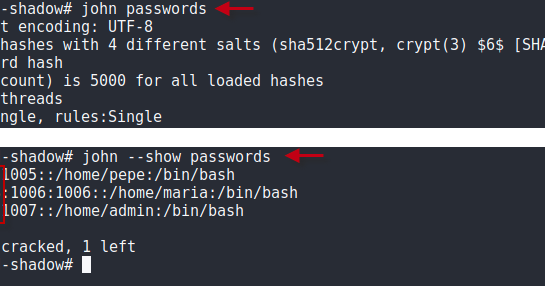Python Md5 Brute Force
Hello guys, Today we will be learn How to create MD5 brute force script using Python. What is brute-force Attack? Brute-force attack also known exhaustive key search; Process of checking all possible keys; Using a dictionary to attack with; Dictionary is usually more effective than searching the whole key space. Exponentially grow with. Import hashlib password = 'MD5Online' md5 = hashlib.md5 (password.encode ) print ('The corresponding hash is: ') print (md5.hexdigest ); By the way, I’m testing this on a Raspberry Pi 4 to make sure it works. The Raspberry Pi is the perfect device to create a mini server at home (and bring it in travel), to run Python scripts in background. I use python 2.7, and I have a simple multitheaded md5 dict brute: # -.- coding: utf-8 -.- import md5 import Queue import threading import traceback md5queue = Queue. Python Parallel hash bruteforce. @Blender This is just a learning exercise and python is the language I understand the. Parallelize brute force generation. Python-md5-bruteforce Hi. This is my first python script and first github repository. So if i did any mistake i apologize. Just clone script from my github page.
I use python 2.7, and I have a simple multitheaded md5 dict brute: # -*- coding: utf-8 -*- import md5 import Queue import threading import traceback md5_queue = Queue. Python Parallel hash bruteforce. @Blender This is just a learning exercise and python is the language I understand the. Parallelize brute force generation. How to write a brute-force password cracker. The algorithm is md5(concat(md5(password), salt)). Here is my code written in python. This module implements a common interface to many different secure hash and message digest algorithms. Included are the FIPS secure hash algorithms SHA1, SHA224.



Note Feeding string objects into update() is not supported, as hashes work on bytes, not on characters. Constructors for hash algorithms that are always present in this module are sha1(), sha224(), sha256(), sha384(), sha512(), and. Md5() is normally available as well, though it may be missing if you are using a rare “FIPS compliant” build of Python.
Python Md5 Brute Force Tutorial
Additional algorithms may also be available depending upon the OpenSSL library that Python uses on your platform. Program De Verificare Plagiat Gratuit. On most platforms the sha3_224(), sha3_256(), sha3_384(), sha3_512(), shake_128(), shake_256() are also available.
Sha224 ( b 'Nobody inspects the spammish repetition' ). Hexdigest () 'a4337bc45a8fc544c03f52dc550cd6e1e87021bc896588bd79e901e2' hashlib. New ( name [, data ] ) Is a generic constructor that takes the string name of the desired algorithm as its first parameter. It also exists to allow access to the above listed hashes as well as any other algorithms that your OpenSSL library may offer. Fast And Furious 5 Rio Game here. The named constructors are much faster than and should be preferred. Using with an algorithm provided by OpenSSL. Changed in version 3.1: The Python GIL is released to allow other threads to run while hash updates on data larger than 2047 bytes is taking place when using hash algorithms supplied by OpenSSL.

Digest ( ) Return the digest of the data passed to the method so far. This is a bytes object of size which may contain bytes in the whole range from 0 to 255. Securecrt 7.0.3 Portable Win X86 more. Hexdigest ( ) Like except the digest is returned as a string object of double length, containing only hexadecimal digits. This may be used to exchange the value safely in email or other non-binary environments.
Copy ( ) Return a copy (“clone”) of the hash object. This can be used to efficiently compute the digests of data sharing a common initial substring. SHAKE variable length digests The shake_128() and shake_256() algorithms provide variable length digests with length_in_bits//2 up to 128 or 256 bits of security. As such, their digest methods require a length. Maximum length is not limited by the SHAKE algorithm.

Python Md5 Brute Force Example
Digest ( length ) Return the digest of the data passed to the update() method so far. This is a bytes object of size length which may contain bytes in the whole range from 0 to 255. Hexdigest ( length ) Like except the digest is returned as a string object of double length, containing only hexadecimal digits. This may be used to exchange the value safely in email or other non-binary environments.